Coated Thickness Gauge
20000 INR/Piece
Product Details:
- Product Type Coating Thickness Gauge
- Weight 230 Grams (g)
- Color Grey
- Display Digital
- Usage Industrial
- Material MS
- Click to View more
X
Coated Thickness Gauge Price And Quantity
- 20000 INR/Piece
- 1 Piece
Coated Thickness Gauge Product Specifications
- Coating Thickness Gauge
- 230 Grams (g)
- Grey
- Digital
- Industrial
- MS
Coated Thickness Gauge Trade Information
- 100 Piece Per Week
- 1 Week
- All India
Product Description
A coated thickness gauge is a device used to measure the thickness of coatings applied onto substrates, such as paint on metal surfaces or protective films on electronic components. Its a crucial tool in industries like automotive, aerospace, manufacturing, and construction where precise coating thickness is essential for quality control and compliance with standards.
Coated Thickness Gauge Applications:
1. Automotive Industry: Coated thickness gauges are used to measure the thickness of paint coatings on car bodies and parts. Ensuring the right thickness of paint helps maintain aesthetics, corrosion protection, and adherence to environmental regulations.
2. Aerospace Industry: In aerospace manufacturing and maintenance, coated thickness gauges are vital for verifying the thickness of coatings on aircraft components. This includes protective coatings on critical parts to prevent corrosion and maintain structural integrity.
3. Construction Industry: Coated thickness gauges are used to measure the thickness of protective coatings on steel structures, bridges, pipelines, and other infrastructure projects. Proper coating thickness ensures durability, corrosion resistance, and adherence to safety standards.
4. Marine Industry: In marine environments, where structures are exposed to harsh conditions such as saltwater and humidity, coated thickness gauges are used to monitor the thickness of protective coatings on ships, offshore platforms, and marine equipment to prevent corrosion and prolong service life.
5. Electronics Industry: Coated thickness gauges are employed to measure the thickness of protective coatings on electronic components, such as printed circuit boards (PCBs), to ensure insulation, moisture resistance, and performance reliability.
6. Manufacturing Industry: In general manufacturing processes, coated thickness gauges are utilized to measure the thickness of various coatings applied to metal, plastic, or composite materials for functional or decorative purposes. This includes coatings in industries such as furniture, appliances, and consumer goods.
7. Quality Control and Inspection: Coated thickness gauges are essential tools for quality control and inspection in many industries. They help verify that coatings meet specified thickness requirements, ensuring product quality, consistency, and compliance with regulatory standards.
Coated Thickness Gauge FAQ:
Q. What is a coated thickness gauge?
Ans: A coated thickness gauge is a device used to measure the thickness of coatings applied to substrates, such as paint on metal surfaces or protective films on electronic components.
Q. How does a coated thickness gauge work?
Ans: The working principle depends on the type of gauge. For example, magnetic induction gauges measure coatings on ferrous substrates by inducing magnetic fields, while eddy current gauges measure non-ferrous coatings by inducing electrical currents.
Q. Why is measuring coating thickness important?
Ans: Measuring coating thickness is crucial for quality control, ensuring coatings provide adequate protection against corrosion, abrasion, and other environmental factors. It also ensures compliance with industry standards and regulations.
Q. What are the different types of coated thickness gauges?
Ans: Common types include magnetic induction gauges, eddy current gauges, ultrasonic gauges, and beta backscatter gauges. Each type has its advantages and is suitable for specific applications.
Q. Where are coated thickness gauges used?
Ans: Coated thickness gauges find applications in industries such as automotive, aerospace, construction, marine, electronics, and manufacturing, where accurate coating thickness measurement is critical for performance and durability.
Q. How accurate are coated thickness gauges?
Ans: Coated thickness gauges typically offer high accuracy, with some models capable of measuring thicknesses down to micrometers or even nanometers, depending on the technology used.
Q. Are coated thickness gauges portable?
Ans: Yes, many coated thickness gauges are designed to be handheld and portable, allowing for on-site measurements and inspections.
Q. Can coated thickness gauges measure multiple layers of coating?
Ans: Some advanced models can measure multiple layers of coatings, provided that the individual layers have different electrical or magnetic properties.
Q. How often should coated thickness gauges be calibrated?
Ans: Calibration intervals depend on factors such as usage frequency, environmental conditions, and industry regulations. Generally, annual calibration is recommended to maintain accuracy.
Q. Are coated thickness gauges safe to use?
Ans: Yes, coated thickness gauges are safe when used according to manufacturer instructions. However, certain types of gauges, such as those using radioactive sources, require proper handling and precautions to ensure safety.
Q: What is the material of the Coated Thickness Gauge?
Ans: The material of this device is MS (Mild Steel).
Q: What is the usage of the Coated Thickness Gauge?
Ans: It is designed for industrial use.
Q: What type of display does the Coated Thickness Gauge have?
Ans: It features a digital display.
Q: How much does the Coated Thickness Gauge weigh?
Ans: It weighs 230 grams (g).
Q: What is the color of the Coated Thickness Gauge?
Ans: It is grey in color.
Tell us about your requirement

Price:
Quantity
Select Unit
- 50
- 100
- 200
- 250
- 500
- 1000+
Additional detail
Mobile number
Email
 English
English Spanish
Spanish French
French German
German Italian
Italian Chinese (Simplified)
Chinese (Simplified) Japanese
Japanese Korean
Korean Arabic
Arabic Portuguese
Portuguese
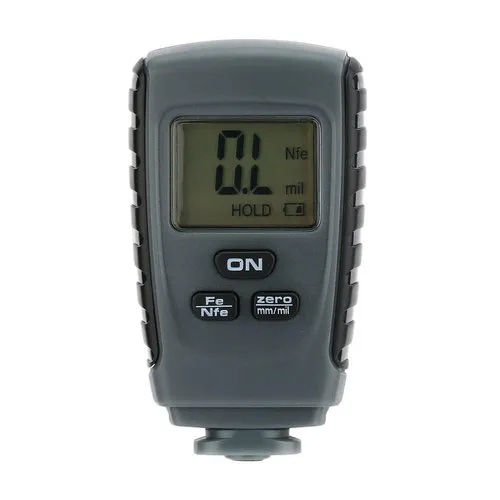

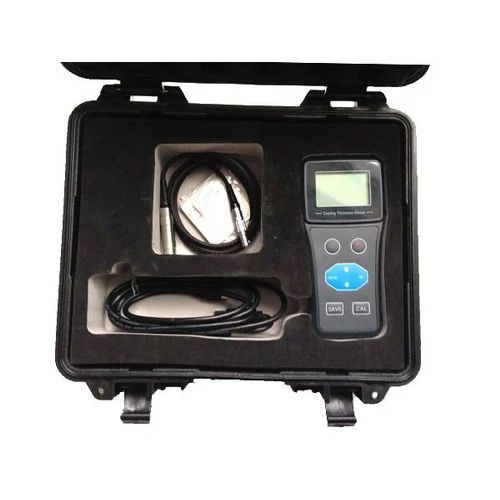
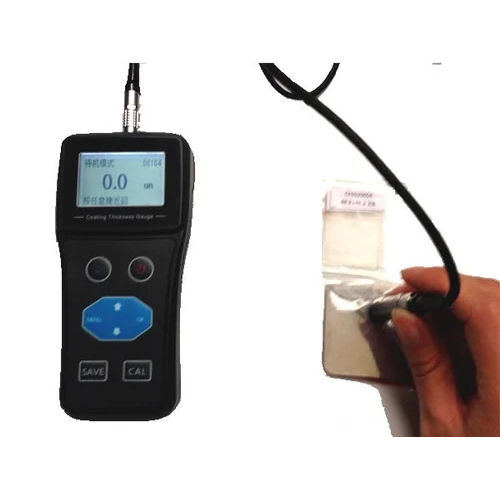
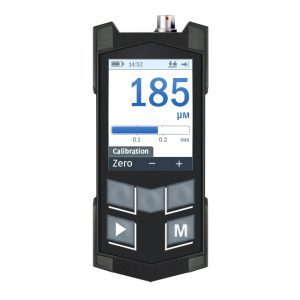
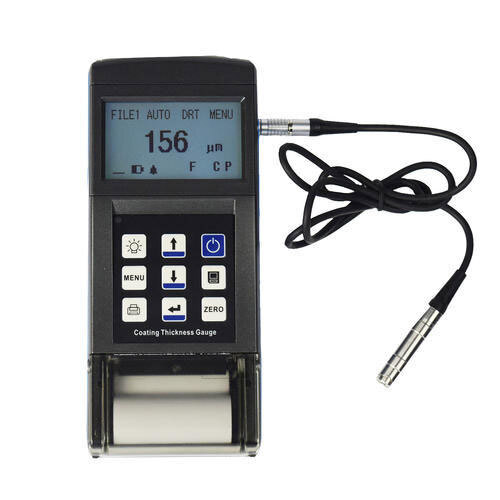
 Call Me Free
Call Me Free
